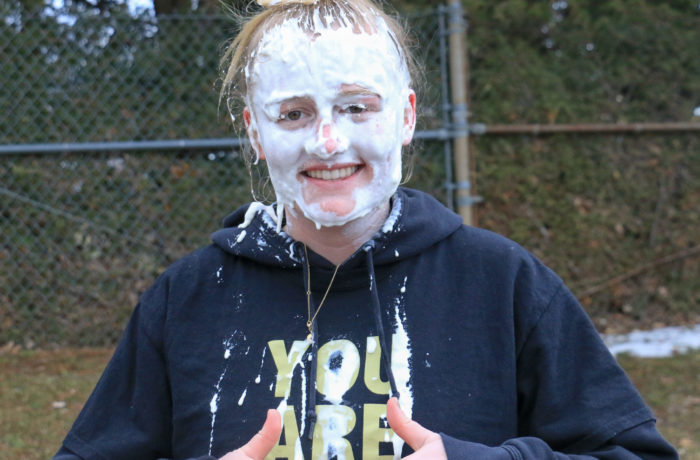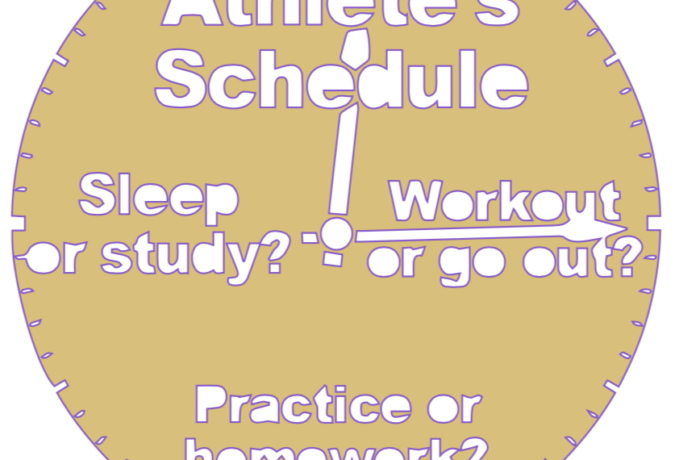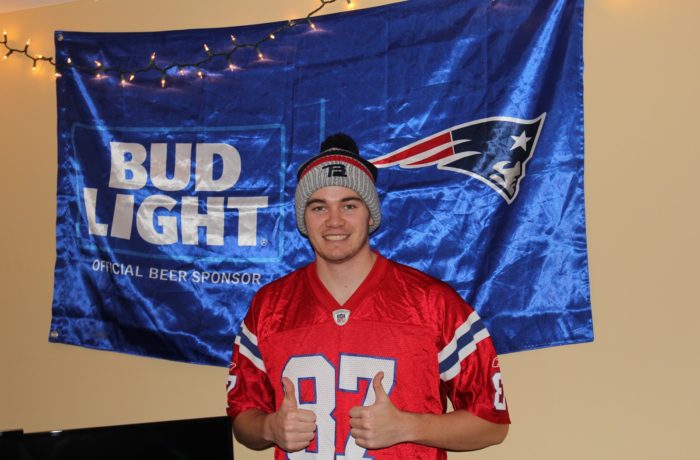By Angela Baldacci
Staff Writer

Who knew that playing women’s ice hockey for St. Michael’s College would lead to hiking mountains, seeing the Grand Canyon, shooting a gun, and traveling across country? Olivia Collins, ‘14, spent the last summer traveling the U.S. through an organization she is coaching for called Planet Hockey. The mission of her organization is to support academic achievement through athletics. Collins was able to meet a lot of other hockey players from different backgrounds and explore their passions.
“Athletics have definitely opened up a lot of doors for me and have helped me meet a lot of great people,” Collins said. “There are so many benefits to participating in sports. I can’t imagine what my life would have been like without them.”
It is no surprise that Collins, who has been playing hock
ey since she was 4, is continuing to incorporate her love for hockey in her post-graduation life.
This is not the case for all student-athletes. Senior Michaela Horne, captain of the women’s soccer team for the past two-years, is planning on taking a break from her sport this summer. She will be living and working in Burlington at a shop downtown, but says that nothing will fill the space that soccer left in her life.
Regardless of whether their sport is a presence in their life, members of the athletic community at Saint Michael’s believe that sports inevitably translate into various realms of life in the “real world.” And with graduation and cover-letter strategies rapidly approaching the horizon, the values and skills tied to being an athlete are more relevant now than ever.
At a panel in the Hall of Fame room last Monday night, April 24, four Saint Michael’s College alumni offered advice and shared their experiences on entering the work field as a previous athlete.
John Jordan, ‘87, Men’s Soccer Hall of Fame (2007) alumnus, explains how the concept of being on a team has significant applications in the work field. Jordan currently works as the senior vice president of sales and marketing for Marathon Health in Winooski. He says that relying on and enabling teammates is a learned skill that is prominent when students apply for jobs. Jordan emphasizes the importance of sensing compassion and empathy when hiring employees, which is something that results from working with and for a collaborative unit.
Brad Harden, ‘10, was a two-time NCAA national championship qualifier on the Alpine Ski Team and is now a portfolio analyst for Goldman Sachs. He suggests that athletes have an advantage when it comes to hard work, time management, communication skills, and dedication.
“Down time isn’t something you’re too familiar with,” Harden said. “Other people need to find the motivation to keep going but for student-athletes it’s not much of a problem.”
Nicole Adach, ’13, agrees. Previously a Saint Michael’s Women’s Basketball player and now a personal trainer in the Burlington area, Adach says that athletes excel in whatever industry they chose to pursue simply because they are used to not being satisfied with mediocre.
“Constantly trying to achieve your best is something that employers and networkers admire and love… your skills as an athlete can be applied to every industry out there,” Adach said.
However, strong work ethic and drive to succeed doesn’t imply consistent goals. “Your definition of success gets a little muddled as you get older,” Harden said. “Success isn’t a great big picture like it used to be but is more of a series of little victories.”
The transition from college life to professional life can be hard. Carolyn Avery, current senior women’s ice hockey and field hockey player, says that her hockey coach, Chris Donovan, gets really emotional when it comes time for the senior players to leave. He finds it hard to go in the locker room on their last game, saying he doesn’t know the right words to say and needs time to process the transition.
The transition from athlete to employee can be equally as challenging. “It’s not necessarily an easy transition for all people but it’s also not necessarily hard either,” says Adach, emphasizing the role athletics plays in self-identity and shaping personality.
Caroline Casper, ‘14, played field hockey and lacrosse at Saint Michael’s College. She continues to play field hockey once a week for a Boston sports club team, but says that her athletic career is most prominent in her work, which is on a trading floor for a bank in Boston. Casper highlights how the sports regimen can feel familiar when applied to a concrete work schedule.
“The everyday routine of being with my team and meeting our work goals and deadlines reminds me so much of being an athlete,” Casper said. “It is almost the same as our day to day practice routine and then having a goal or drive to win in college.”
Teamwork is arguably the most important takeaway from being an athlete. Every representative for the panel and every student-athlete agreed that the lessons learned from working together and ability to communicate to a group are the most applicable to the professional world.
“The most important takeaway from being on a team is that you really need to be adaptable. There are people of all different skill levels and personalities… the more fun you have with getting to know people, the better chemistry a team has,” Collins said. “When a team has good chemistry on and off the court, it goes a long way.”


